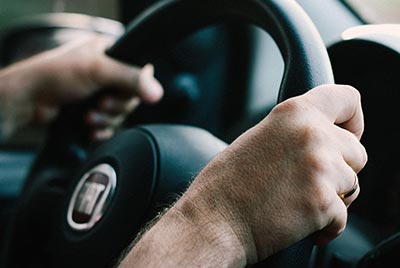Your Rights During A Field Sobriety Test
Getting stopped by the police can often be a stressful situation.
And if they suspect you of driving under the influence you may have to decide whether or not to submit to a field sobriety test. In New Orleans and Covington Louisiana, field sobriety tests follow strict guidelines that you should understand in case you are ever faced with this situation.
If you have been arrested for DUI or DWI in New Orleans and Covington Louisiana and either failed or refused a field sobriety tests please contact immediately. The DUI lawyers at Delise and Hall can provide important legal representation during this critical time.
Louisiana’s procedures for assessing “driving under the influence”
When someone is pulled over by a police officer due to suspicions of driving under the influence, the police officer will speak to the driver and attempt to gauge whether or not they have been drinking or taking drugs. If they feel that it is likely that the driver is under the influence, the officer will go on to conduct field sobriety tests.
As there are a variety of field sobriety tests that a driver may be asked to complete, the following is not a complete guide but can provide an overview as to what to expect and how to handle field sobriety tests.
Standard Field Sobriety Tests
Three field sobriety tests are considered standard, and can be used by officers as probable cause to arrest a driver and charge them with a DUI or DWI. Those test are the one-leg stand, walk and turn, and the horizontal gaze nystagmus test.
- One-leg stand: During the one-leg stand, the driver is asked to step out of the car, stand on one leg and either count or recite the alphabet. This test is intended to assess a person’s ability to divide their attention between two tasks.
- Walk and turn: An officer may ask a driver to take nine steps, turn, and walk nine steps back. They will watch the driver for stumbling or falling, to see how much they rely upon their arms for balance, and even to see if they start before instructed to do so.
- Horizontal gaze nystagmus (HGN): This test gauges one’s ability to track a moving object with their eyes, usually by moving a pen or similar object back and forth across the driver’s field of vision.
How to Handle a Field Sobriety Test
Many drivers do not know their rights regarding field sobriety tests. Knowing these rights can protect you if you are charged with a DUI or a DWI and help you make the right choices at this juncture.
Other important things to know include:
- You are not required to undergo any field sobriety tests. You can and should refuse these tests; they are highly subjective in nature and while they can provide officers with a reason to arrest and charge you, they will do little to convince the police of your sobriety.
- Although these tests can be a good indicator of intoxication when conducted correctly, they are often done incorrectly by insufficiently trained officers.
- The course of action suggested by most legal authorities is to politely decline to participate in these tests or answer any questions.
Rely on local, experienced DUI attorneys for guidance
Knowing your rights regarding field sobriety tests can help you make the best decisions when pulled over for DUI or DWI.
While the best course of action is to avoid driving while intoxicated, if you have been arrested and charged with a DUI, the next step is to contact a law firm with experience handling this type of cases. DAH will help you determine the appropriate steps to ensure the best outcome in this troublesome situation.
Read More on Our Blog

Helpful Legal Links
If you're looking for guidance on a legal matter, take a look through this helpful list of legal links.
What is an 894 Plea for DUI cases in Louisiana?
Article 894 is part of the Code of Criminal Procedure, and was revised in 2008.
Arrested for DUI in Louisiana?
If someone has been arrested for a DUI in Louisiana, it is important to understand the proper steps to take regarding this arrest.

Helpful Legal Links
If you're looking for guidance on a legal matter, take a look through this helpful list of legal links.
What is an 894 Plea for DUI cases in Louisiana?
Article 894 is part of the Code of Criminal Procedure, and was revised in 2008.
Arrested for DUI in Louisiana?
If someone has been arrested for a DUI in Louisiana, it is important to understand the proper steps to take regarding this arrest.


